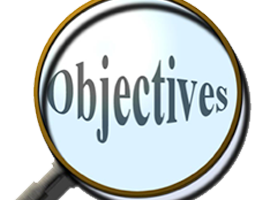INTRODUCTION TO SOCIOLOGY OF ORGANISATIONS
Aperçu des sections
-
First Year Common Core
Finance and Accounting Department

-

Module: INTRODUCTION TO SOCIOLOGY OF ORGANISATIONS
Academic year: 2025/2026
Level: L1 Common Core
Faculty of Economics, Business and Management
Department of Finance Sciences and Accounting
Lectuer: Dr. CHIB Djazia Amina
Tutor: Dr. CHIB Djazia Amina
Email: djazia.chib@univ-tlemcen.dz
Teaching unit: Discovery
Coefficient :01
Credits:01
Semester hours: 22.5 hours / 15 weeks
Weekly volume: 1.5 h/ week
Evaluation method: General average = Examination x 100
▪ Exam: The grade from the end of semester exam.
Follow-up modality (tutoring schedule):
Monday: 10h00-11h30.
Tuesday: 10h00-11h30.
-

-
Understand the Nature of Organisations
-
Introduce students to the concept of organisations as social systems and structures.
-
Explore how organisations function within broader social, economic, and political contexts.
-
-
Develop a Sociological Perspective
-
Equip students with the ability to analyse organisations using key sociological theories and concepts.
-
Encourage critical thinking about the roles, norms, power dynamics, and cultures within organisations.
-
-
Familiarise Students with Theoretical Approaches
-
Present classical and contemporary sociological theories related to organisations (e.g., bureaucracy, institutionalism, systems theory).
-
Compare and contrast different theoretical frameworks and their application to real-world organisational settings.
-
-
Analyse Organisational Behaviour and Structures
-
Study organisational hierarchy, communication, leadership, decision-making, and formal/informal structures.
-
Understand how internal and external factors influence organisational performance and change.
-
-
Evaluate the Impact of Organisations on Society
-
Discuss the role of organisations in shaping social relationships, inequality, and power.
-
Explore topics like gender, diversity, ethics, and globalisation in the organisational context.
-
-
Apply Knowledge to Practical Contexts
-
Encourage students to observe and analyse actual organisations using sociological tools.
-
Prepare students to apply sociological insights in careers such as management, human resources, administration, and consultancy.
-
-
-
To be able to take this course, the student should have:
Basic Understanding of Sociology
-
Familiarity with foundational concepts: society, social structure, roles, norms, institutions, and culture.
-
Introductory knowledge of classical sociological thinkers (e.g., Durkheim, Weber, Marx).
-
-
Critical Thinking Skills
-
Ability to analyse texts and identify key arguments.
-
Ability to question assumptions and consider multiple perspectives.
-
-
Academic Reading and Writing
-
Comprehension of academic texts in social sciences.
-
Basic essay writing and structuring skills (introduction, development, conclusion).
-
-
Communication Skills
-
Ability to participate in discussions, express ideas clearly, and respond to others’ views.
-
-
Basic Research Skills
-
Ability to find, read, and summarise scholarly sources.
-
Understanding how to cite sources and avoid plagiarism.
-
-

General objectives
Contact form
Pre-requisites and test of the pre-requisites
General Introduction
Chapter 1: Sociology origins and development
Chapter 2: Pioneers of sociology/ Ibn Khaldoun, August Compte
Chapter 3: Social phenomena and the relationship of sociology to other sciences
Chapter 4: Sociology of organisations
Chapter 5: The sociological approach to the culture and identity of the organisation
Chapter 6: Theories of organisation /Classical theories
Chapter 7: Theories of organisation / behavioural theory
Chapter 8: Theories of organisation / modern theories
Chapter 9: Managerial leadership in work organisations
Chapter 10: Professional identity and work group dynamics
Post-tests and remediation method
General conclusion
Bibliographic References
-
The course Introduction to Sociology of Organisations provides students with a foundational understanding of how organisations operate as social systems. It explores the structures, cultures, and dynamics that shape human behaviour within organisations, using key sociological theories and concepts. Through this course, students will gain insight into the ways organisations influence and are influenced by society, power relations, norms, and economic systems.
Students will engage with classical and contemporary perspectives, including the works of Max Weber, Emile Durkheim, and others, to critically examine bureaucracy, authority, leadership, and organisational change. The course also addresses modern issues such as globalisation, diversity, and corporate social responsibility.
By the end of the course, students will be able to apply sociological analysis to real-world organisational settings and understand the complex interplay between individuals, groups, and institutional structures in various types of organisations.
🔑 Key Words:
-
Sociology, Organisation,Social structure, Bureaucracy, Authority, Power,Culture, Roles and norms, Leadership, Motivation, Change and resistance, Institutional theory, Globalisation, Social responsibility, Inequality, Social systems
-
-
🔍 Short Description:
This chapter introduces the historical emergence of sociology as an academic discipline. It traces its origins in the 19th century as a response to major social changes such as the Industrial Revolution, urbanisation, and the rise of capitalism. The chapter presents the contributions of key founding figures such as Auguste Comte, Karl Marx, Emile Durkheim, and Max Weber, and explains how their ideas laid the foundation for modern sociological thinking. The chapter also explores the evolution of sociological thought through various schools and approaches, highlighting how sociology developed as a tool to understand and analyse complex social realities.
-------------------------------------------------------------------------------------------------------------------------------------------------------------------------------
🎯 Specific Learning Objectives:
By the end of this chapter, students should be able to:
-
Define sociology and explain its purpose as a social science.
-
Identify the historical context that led to the birth of sociology (e.g., industrialisation, social upheaval).
-
Recognise the key founders of sociology and summarise their main contributions.
-
Distinguish between different classical sociological perspectives (positivism, conflict theory, functionalism, interpretivism).
-
Explain how sociology has evolved over time and adapted to new social realities.
-
Appreciate the relevance of early sociological ideas in understanding modern organisations and societies.
-
-
🔍 Short Description:
This chapter introduces the early pioneers of sociology who laid the groundwork for the development of the discipline. It focuses on Ibn Khaldoun, a 14th-century Arab thinker known for his analysis of society and history, and Auguste Comte, a 19th-century French philosopher considered the founder of modern sociology. Their contributions mark the transition from philosophical speculation to systematic and scientific study of society.
---------------------------------------------------------------------------------------------------------------------------------------------------------------------------
🎯 Specific Objectives:
By the end of this chapter, students will be able to:
-
Define the role of pioneers in shaping the foundations of sociology.
-
Outline the main ideas of Ibn Khaldoun, particularly his theory of ‘Asabiyyah and cyclical view of history.
-
Describe the contributions of Auguste Comte, especially his concept of positivism and the law of three stages.
-
Recognize the historical and intellectual context in which both thinkers developed their ideas.
-
Compare the sociological perspectives of Ibn Khaldoun and Auguste Comte.
-
Assess the influence of their work on the evolution of modern sociology.
-
-
🔍Short Description:
This chapter explores social phenomena—observable facts or events that occur within human societies—and how sociology seeks to study, explain, and interpret them. It also highlights the interdisciplinary nature of sociology, showing how it connects and interacts with other sciences such as psychology, economics, political science, anthropology, and history. By understanding these relationships, students grasp the broader context of sociological analysis and the importance of a multidimensional approach to studying society.
🎯Specific Objectives:
By the end of this chapter, students should be able to:
-
Define the concept of social phenomena and give concrete examples.
-
Explain the characteristics and types of social phenomena (e.g., norms, values, roles, institutions).
-
Analyze how sociology approaches social phenomena using scientific methods.
-
Identify the main similarities and differences between sociology and other related social sciences.
-
Describe how sociology collaborates with disciplines like psychology, economics, political science, and anthropology in understanding society.
-
Evaluate the importance of interdisciplinary research in solving complex social issues.
-
-
🔍Short Description:
his chapter introduces the study of organisations from a sociological perspective. It explores how organisations function within society, how they are structured, how people interact within them, and how power, authority, norms, and cultures shape organizational behavior. The chapter also examines the impact of social factors on organizational effectiveness and the influence of organisations on individuals and society.-------------------------------------------------------------------------------------------------------------------------------------------------------------------------🎯Specific Objectives:
By the end of this chapter, students should be able to:
-
Define the concept of an organisation and understand its characteristics.
-
Explain the importance of studying organisations sociologically.
-
Identify different types of organisations (formal, informal, public, private, etc.).
-
Analyze the structure and hierarchy within organisations.
-
Understand key sociological theories related to organisations (e.g., bureaucracy, scientific management, human relations approach).
-
Explore the role of culture, communication, and power in organisations.
-
Examine the relationship between the individual and the organisation.
-
Discuss how organisations interact with their external social environments.
-
-
🔍Short Description:
The chapter on "The Sociological Approach to the Culture and Identity of the Organisation" explores how sociological theories and concepts help us understand the internal life of organisations. It focuses on how organisational culture—composed of shared values, norms, rituals, and symbols—shapes behavior, communication, and decision-making. The chapter also examines how individual and collective identities are formed and expressed within the organisation, and how these identities influence cohesion, performance, and change.
🎯Specific Objectives:
-
Define the concepts of organisational culture and organisational identity from a sociological perspective.
-
Analyze how culture is created, maintained, and transformed within organisations.
-
Identify the components of organisational culture (e.g. values, rituals, symbols, stories).
-
Understand the relationship between individual identity and organisational identity.
-
Evaluate the impact of organisational culture on employee behavior, communication, and decision-making.
-
Examine how sociological theories (e.g. functionalism, conflict theory, symbolic interactionism) explain cultural dynamics within organisations.
-
Assess the role of leadership and socialization in shaping and transmitting organisational culture.
-
Investigate how organisational culture influences resistance to change and innovation.
-
-
🔍Short Description:
This chapter explores the classical theories of organisation, which represent the earliest systematic attempts to understand and structure organisations. These theories, developed mainly in the late 19th and early 20th centuries, focus on efficiency, hierarchy, structure, and clear division of labour. The main contributors include Frederick Taylor (Scientific Management), Henri Fayol (Administrative Theory), and Max Weber (Bureaucratic Theory). The chapter highlights how these foundational ideas shaped modern organisational practices.
🎯Specific Objectives:
By the end of this chapter, students should be able to:
-
Define classical organisational theories and explain their historical context.
-
Describe the main features of Scientific Management and Frederick Taylor’s contributions.
-
Explain Henri Fayol’s Administrative Theory and its 14 principles of management.
-
Analyse Max Weber’s Bureaucratic Theory, including its key characteristics.
-
Compare and contrast the three main classical theories.
-
Critically evaluate the strengths and limitations of classical theories in the context of modern organisations.
-
Apply classical principles to understand organisational structure and management practices.
-
-
This chapter explores the Behavioural Theory of Organisation, which emerged as a response to the limitations of classical theories. It focuses on the human aspects of work, highlighting the role of individual and group behaviour, motivation, communication, leadership, and decision-making within organisations. Behavioural theory emphasizes that understanding human needs and social interactions is crucial for improving organisational effectiveness.🔍Short Description:
🎯Specific Objectives:
By the end of this chapter, students should be able to:-
Define the behavioural theory and explain its origins and key contributors (e.g., Elton Mayo, Abraham Maslow, Douglas McGregor).
-
Understand the importance of human relations and motivation in the workplace.
-
Identify the main behavioural models (e.g., Maslow’s hierarchy of needs, McGregor’s Theory X and Theory Y).
-
Analyse how leadership styles and group dynamics affect organisational performance.
-
Evaluate the strengths and limitations of behavioural theory in modern organisational contexts.
-
Apply behavioural principles to real-life organisational issues such as conflict, communication, and employee engagement.
-
-
🔍Short Description:
This chapter explores modern theories of organisation, which emerged as a response to the limitations of classical and behavioural theories. These modern approaches emphasize systems thinking, environmental interactions, and the complexity of organisational structures. Key theories discussed include the Systems Theory, Contingency Theory, and Chaos and Complexity Theory, each offering a more dynamic and adaptable view of organisations in a constantly changing environment.
🎯Specific Objectives:
By the end of this chapter, students should be able to:
-
Understand the evolution from classical and behavioural theories to modern organisational theories.
-
Explain the main concepts of Systems Theory and how organisations function as open systems.
-
Analyze the Contingency Theory and its emphasis on adapting organisational structures to different internal and external conditions.
-
Explore Complexity and Chaos Theories and how they apply to decision-making and change in organisations.
-
Compare and contrast modern theories with classical and behavioural approaches.
-
Evaluate the relevance of modern theories in managing today’s complex and dynamic organisations.
-
-
This chapter explores the concept of managerial leadership as a crucial element in work organisations. It distinguishes leadership from management, examines various leadership styles, and analyses how leadership impacts organisational performance, motivation, and communication. The chapter also discusses contemporary leadership theories and the role of context and culture in shaping leadership practices.🔍Short Description:
🎯Specific Objectives:
By the end of this chapter, the learner should be able to:-
Define managerial leadership and distinguish it from traditional management roles.
-
Identify and describe different leadership styles (e.g., autocratic, democratic, transformational, transactional).
-
Analyse the impact of leadership on employee motivation, organisational culture, and effectiveness.
-
Understand the main modern leadership theories (e.g., situational, servant, charismatic leadership).
-
Evaluate the influence of organisational structure and culture on leadership practices.
-
Recognise the challenges of leadership in contemporary work environments, including ethical leadership and diversity considerations.
-
-
🔍Short Description:
This chapter explores how individuals develop their professional identity—the sense of self shaped by one's role and status within a profession—and how this identity interacts with work group dynamics. It examines how teams function, the roles individuals play within them, and how group interactions influence behaviour, communication, motivation, and job satisfaction. The chapter also highlights how professional identity can affect collaboration, conflict, and productivity in organisational settings.
🎯Specific Objectives:
By the end of this chapter, students should be able to:
-
Define the concept of professional identity and understand how it is formed and developed.
-
Explain the key components and stages of work group dynamics.
-
Identify the factors that influence the development of professional identity within organisations.
-
Analyze the relationship between professional identity and group performance.
-
Evaluate the impact of group roles, norms, and cohesion on individual and team behaviour.
-
Discuss challenges related to identity conflicts, intergroup tensions, and role ambiguity.
-
Apply theoretical frameworks to real-life workplace scenarios involving teams and professional identity formation.
-
-

✅ General Conclusion:
The course Introduction to Sociology of Organisations provides a foundational understanding of how organisations function as complex social systems. By applying sociological concepts and theories, students learn to analyse the structures, cultures, roles, and dynamics that shape organisational life. Unlike purely technical or economic approaches, the sociological perspective emphasizes human interactions, power relations, identity formation, and the impact of social norms and values within the workplace. This approach not only enhances our understanding of organisational behaviour but also equips us with critical tools to address real-world challenges such as conflict, inequality, motivation, and change. Ultimately, the course fosters a deeper appreciation for the social dimensions of organisations and their role in shaping both individual and collective experiences in modern society.
-

Alvesson, M., & Spicer, A. (2016). The stupidity paradox: The power and pitfalls of functional stupidity at work. Profile Books.
-
Barley, S. R., & Kunda, G. (2021). Work and organization studies: Inside organizations and out. Emerald Publishing.
-
Clegg, S. R., & Kornberger, M. (2015). Managing and organizations: An introduction to theory and practice (4th ed.). SAGE Publications.
-
Hatch, M. J., & Schultz, M. (2017). Organizational identity: A reader. Oxford University Press.
-
Heugens, P. P. M. A. R., & Sydow, J. (2022). Organizational networks: Recent debates and future directions. Journal of Management Studies, 59(1), 1–22. https://doi.org/10.1111/joms.12723
-
Scott, W. R. (2014). Institutions and organizations: Ideas, interests, and identities (4th ed.). SAGE Publications.
-
Greenwood, R., Oliver, C., Lawrence, T. B., & Meyer, R. E. (Eds.). (2017). The SAGE handbook of organizational institutionalism (2nd ed.). SAGE Publications.
-
King, B. G., Felin, T., & Whetten, D. A. (2010). Perspective—Finding the organization in organizational theory: A meta-theory of the organization as a social actor. Organization Science, 21(1), 290–305. https://doi.org/10.1287/orsc.1090.0443
-
Burrell, G., & Morgan, G. (2017). Sociological paradigms and organisational analysis: Elements of the sociology of corporate life (Reprint ed.). Routledge.
-
Reitz, M. (2021). Organisational culture: A review and critique of key perspectives. Journal of Organizational Change Management, 34(2), 223–240. https://doi.org/10.1108/JOCM-07-2020-0210


